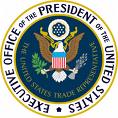 On Monday Amy 2, USTR published the 2011 Special 301 Report, available here. After examining 77 countries, it included 12 on the Priority Watch List, 28 on the Watch list, and under “Section 306 monitoring.” Most of the countries in this year’s Special 301 Report have been regularly included in previous ones. For the first time, USTR invites countries to “negotiate a mutually agreed action plan” that would eventually lead to their removal from future reports. USTR included a very brief section on best practices, which highlighted 1) “improved cooperation and stakeholder engagement” in the instance of legislative and regulatory change, 2) “efforts to tackle new challenges in IPR protection and enforcement,” and 3) “active participation of government officials in capacity building efforts and training.” Initial reactions from public interest groups generally found that the 2011 report was similar to previous ones, and that it did not seem to reflect input from civil society.
On Monday Amy 2, USTR published the 2011 Special 301 Report, available here. After examining 77 countries, it included 12 on the Priority Watch List, 28 on the Watch list, and under “Section 306 monitoring.” Most of the countries in this year’s Special 301 Report have been regularly included in previous ones. For the first time, USTR invites countries to “negotiate a mutually agreed action plan” that would eventually lead to their removal from future reports. USTR included a very brief section on best practices, which highlighted 1) “improved cooperation and stakeholder engagement” in the instance of legislative and regulatory change, 2) “efforts to tackle new challenges in IPR protection and enforcement,” and 3) “active participation of government officials in capacity building efforts and training.” Initial reactions from public interest groups generally found that the 2011 report was similar to previous ones, and that it did not seem to reflect input from civil society.
Reactions to the 2011 Special 301 Report:
- Sean Flynn, PIJIP
- Complete comments
- Overall, this year’s Special 301 Report shows relatively little effort to respond to public interest submissions outside of the medicines issue. Even on medicines, the section on the Doha Declaration is word for word what it said last year and there appears to be little variance in the policies demanded this year.
- Notably, in its new “best practices” section, there is no mention of any best practice submitted by a public interest organization, of which there many. It is fairly clear that USTR feels no requirement to respond to a divided record before it. That may open it up for charges of arbitrary adjudication under U.S. administrative law.
- James Love, Knowledge Ecology International
- Complete comments
- On the copyright side, much of it is fairly familiar. On the medicines side, note that USTR cited 20 countries for inadequate intellectual property protection for data used to register pharmaceutical drugs, including 4 of the 9 members of the TPP negotiation, one of which is classified as a least developed country (Viet Nam).
- It was a disappointment to read that USTR is pressing so hard on the pharmaceutical test data issue, including even for a Least Developed Country (LDC), and that the USTR cites the Philippines for tying patentability of certain chemical forms unless the applicant demonstrates increased efficacy, and complains that India does not patent “temperature-stable forms of a drug or new means of drug delivery.” During the hearings, public health groups made it quite clear that it was important for developing countries to continue to have the flexibility to limit the evergreening of pharmaceutical products via these types of patents.
- Rashmi Rangnath, Public Knowledge:
- Full comments
- “the Report places blind reliance on rights holder assertions about the presence, nature, and extent of copyright, patent, and trademark infringements; it ignores the need for balanced copyright regimes in countries through out the world; it cites countries based on vague criteria; it pressures countries to sign on to international agreements that don’t currently bind them and that these countries possibly consider detrimental to their national interest…
- “…the 2010 and 2011 processes saw a greater degree of public interest participation than years before. Various public interest groups including Public Knowledge filed comments and testified before the USTR. Yet we seem to have had little impact on the findings of the Reports. In fact, this year’s Report does not even address arguments put forward by public interest groups.”
Countries in the 2011 Special 301 Report:
- PRIORITY WATCH LIST: China, Russia, Algeria, Argentina, Canada, Chile, India, Indonesia, Israel, Pakistan, Thailand, Venezuela
- WATCH LIST: Belarus, Bolivia, Brazil, Brunei, Colombia, Costa Rica, Dominican Republic, Ecuador, Egypt, Finland, Greece, Guatemala, Italy, Jamaica, Kuwait, Malaysia, Mexico, Norway, Peru, Philippines, Romania, Spain, Tajikistan, Turkey, Turkmenistan, Ukraine, Uzbekistan, and Vietnam
- SECTION 306 MONITORING: Paraguay
Documents released by USTR:




